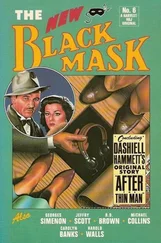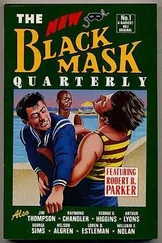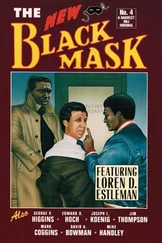I sat perfectly still, not smiling. No, I didn’t think any of this was the least bit funny; nor was I interested in jailhouse irony anymore. In the back of my mind I knew he wasn’t going to do shit to me. He wasn’t going to put me in the SHU, he wasn’t going to lay a hand on me, I wasn’t going to lose my good time. It wasn’t worth it to them to do the paperwork that that would require. And he knew that I knew. Which was why he was screaming at me, and scaring me, even though we both knew it was a totally pointless exercise. No, I didn’t think it was funny.
My out-of-bounds infraction was a minor one, a 300-series shot, along the same lines of: refusing to obey a direct order, participating in an unauthorized meeting or gathering, failing to stand for count, giving or accepting anything of value to or from another inmate, possession of nonhazardous contraband; and indecent exposure. Even lower on the list were the 400-series: faking sick, tattooing or self-mutilation, conducting a business, or unauthorized physical contact (like hugging someone who was crying).
More serious by far were the 200-series shots: fighting; extortion, blackmail, protection rackets; wearing a disguise; engaging in or encouraging a group demonstration; work stoppage; bribery; stealing; demonstrating, practicing, or using martial arts, boxing, wrestling, or other forms of physical encounters, military exercises or drills; and the best-known of all shots, the 205-engaging in sexual acts.
The 100-series were the worst of all; you could catch another charge for them. Murder, assault, escape, possession of a weapon, inciting a riot, drug possession, and one perfect catch-all: “conduct which disrupts or interferes with the orderly running of the institution or the BOP.”
Eventually the lieutenant stopped glaring at me and cast his eyes over to the bald man in the corner of the room. “Is there anything you’d like to add, Mr. Richards?”
Certain prison guards relish the power and control that they wield over other human beings. It oozes from their pores. They believe it is their privilege, their right, and their duty to make prison as miserable as possible by threatening, withholding, or abusing at every opportunity. In my experience, these creatures weren’t the sleazeballs who’d act sexually toward prisoners; in fact, they would never fraternize with lower life-forms like us, and they reserved their most withering scorn for their colleagues who treated us humanely.
Richards, also an enormous man, was a permanent shade of florid pink and kept his shaved head shiny. He looked like Mr. Clean’s evil twin.
“Yeah. There is.” Richards leaned forward. “I don’t know what the hell has been going on up there, but we all know that the Camp is off the chain. Well, you go back up there and you tell your friends that I’m headed up there this new quarter, and things are going to be completely different. You make sure you pass the word.” He leaned back in his chair, satisfied.
All eight of us got the same speech-of course we compared notes. My punishment was ten hours of extra duty.
I volunteered to work on the special overnight kitchen crew that was needed to produce Thanksgiving dinner. That way I would get all ten hours over in one fell swoop. Pop and the prison foreman she worked for, a well-liked guy whose office was full of plants, took holiday meals seriously. An extra-large team of women prepared turkey, sweet potatoes, collard greens, mashed potatoes, and stuffing, plus Natalie’s pies. I was on pots detail, clad in a rubber apron, giant rubber gloves, and a hairnet. We played the radio, I got a few tastes as we went, and everything was finished despite Pop’s nervousness. (She had only done it for ten years in a row.)
We worked all night until the sun came up, and I felt pleasantly exhausted. This was the best way to be penitent, to pour my energy into the communal meal that we would all be sharing soon, even though most of us would rather be someplace else. Thanksgiving Day I slept, had a visit with Larry and our friend David, and then ate my fill with Toni and Rosemarie-it was easily the best meal of the year. The feast was somewhat marred when the quiet Spanish mami sitting next to me burst into tears in the middle of dinner and proved inconsolable.
I ALWAYS thought I was an Episcopalian. I didn’t realize it, but I had really been raised to follow the ethos of Stoicism-the Greco-Roman answer to Zen. Many people on the outside (especially men) had admired my stoicism when I was on my way to prison. According to Bertrand Russell, the virtuous stoic was one whose will was in agreement with the natural order. He described the basic idea like this:
In the life of the individual man, virtue is the sole good; such things as health, happiness, possessions, are of no account. Since virtue resides in the will, everything really good or bad in a man’s life depends only upon himself. He may become poor, but what of it? He can still be virtuous. A tyrant may put him in prison, but he can still persevere in living in harmony with Nature. He may be sentenced to death, but he can die nobly, like Socrates. Therefore every man has perfect freedom, provided he emancipates himself from mundane desires.
Stoicism sure comes in handy when they take away your underpants. But how to reconcile it with one’s insatiable need for other people? Surely my desire for connection, for intimacy, for human touch was not “mundane”? The very worst punishment that we can come up with short of death is total isolation from other humans, the Supermax, Seg, solitary, the Hole, the SHU.
The truth is, I was having trouble being a good stoic. I couldn’t resist life’s emotional flow and pulse, or the imperfect people I found so vital. I kept on throwing myself into the current, although once in I could usually stay calm and keep my head above water.
Still I had to wonder, why had my need to transgress taken me so far, to a prison camp? Perhaps I was just dense, unable to understand these things from a distance but instead intent on scorching myself face to the fire, burning off my eyelashes. Do you have to find the evil in yourself in order to truly recognize it in the world? The vilest thing I had located, within myself and within the system that held me prisoner, was an indifference to the suffering of others. And when I understood how rotten I had been, what would I do with myself, now that I was revealed as wretched, not just in private but in public, in a court of law?
If there was one thing that I had learned in the Camp, it was that I was in fact good. I wasn’t so good with chickenshit rules, but I was more than capable of helping other people. I was eager to offer what I had, which was more than I had realized. Judging others held little appeal to me now, and when I did it, I regretted it. Best of all, I had found other women here in prison who could teach me how to be better. It seemed to me that my total demonstrated failure at being a good girl was more than matched by the urgency of being a good person. And that was something of which I hoped my grandmother would approve, and maybe forgive me, when I could not attend to her suffering.
THE DAY after Thanksgiving my grandmother died. I mourned quietly and with the sympathy of my friends. I felt like a wrung-out rag. I stared for many hours over the valley, lost in the past, and slowed to a walk on the track. I had never received a response to my furlough request. As Pop said, I had had nothing coming.
About a year later, when I was home on the street, I got a letter from Danbury. Formal, a little stilted, it was from Rosemarie, and folded in it were two photographs of my grandmother. My cousin had sent them to me in prison, and I had looked at them hundreds of times when I needed to smile. In the first, my grandmother has just opened a festively wrapped present, an oversize black Harley-Davidson T-shirt. Her face shows undisguised horror. In the second, the gag gift is clasped in her lap, and she beams at the camera, her eyes bright with laughter. Rosemarie wrote that she hoped I was doing well on the outs, and that she had found these photos in a book in the library and recognized who it was. Rosemarie said she knew how much I loved my grandmother, and also that she was thinking of me.
Читать дальше












